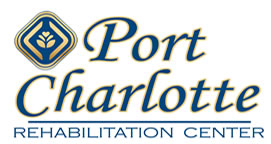” You would not believe that chewing on a piece of bread is cause for issue,” says Jeff
Cleveland, president of Clear Choice Health Care.
” But it can be,” confesses Cleveland. He states there is a great balance between chewing and breathing. When a medical or neurologic condition interferes with the equilibrium between the two, breathing and swallowing can become precariously out of sync.
Parkinson disease, for instance, slows down our motion. Not just are arms and legs involved, however the tongue is likewise. Difficulty chewing, moving food along, and finally swallowing can trigger coughing and gaging.
Strokes can also cause problem while consuming liquids swallowing solid foods and create high threats for developing goal pneumonia with readmittance to a healthcare facility that can delay neurological healing.
 The condition of multiple sclerosis makes it hard to swallow. Sometimes, some of the food gets left behind in the throat and can be drawn into the respiratory tract. Food material makes its method to the lungs to cause pneumonia since cough muscles become weak.
The condition of multiple sclerosis makes it hard to swallow. Sometimes, some of the food gets left behind in the throat and can be drawn into the respiratory tract. Food material makes its method to the lungs to cause pneumonia since cough muscles become weak.
Another swallowing offender originates from Alzheimer’s illness. For those patients, a single swallow might take 3 minutes or longer. As the disease progresses, often times it leaves clients on the verge of dehydration, and patients can forget what to do with food when it’s in the mouth.
Swallowing rehab professionals report that neurological illness can offset a typical swallow. An irregular swallow can lead to can cause serious issues such as dehydration, poor nutrition, and a higher rate of infection and goal pneumonia.
According to swallowing specialists, goal can result from issues at any phase of the swallowing procedure:
– The food does not seem to decrease Due to the fact that of a physiological defect that we share with a lot of other air-breathing vertebrates, it’s normal to choke if things go down the incorrect way. Our breathing tube, (the windpipe or trachea), isn’t different from the one we utilize for swallowing, the esophagus. Anything we consume all share the same commute, however right around the Adam’s apple, the trachea branches off. ” Choking regularly might be cause for issue,” says Cleveland. “If you believe you’re in harm’s way, look for a medical professional’s guidance. Ask if a speech language pathologist can promote a safer swallow.”Consulting with a medical professional is best if you have actually a couple of noted complaints, as follows:
– With one spoonful, I need to swallow more than when.
– When I consume, tears pertain to my eyes
– At mealtimes, my nose runs
– Pills seem to get stuck in my throat
– I usually cough when I drink water
– Food often falls out of my mouth
– I have a hard time consuming a steak
When I swallow, – Juice goes up my nose
– It injures when I swallow
– After I consume, my voice sounds amusingJeff Cleveland is the President of Clear Choice Health Care in Melbourne FL







